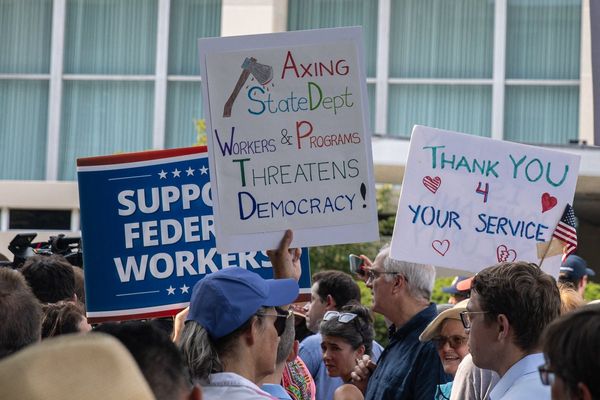In a significant development, the Supreme Court on May 15 ordered the release of online portal NewsClick founder Prabir Purkayastha from custody after concluding that his arrest and remand under the draconian Unlawful Activities Prevention Act, 1967 (UAPA) by the Delhi Police are “invalid in the eyes of law”.
A Bench of Justices B.R. Gavai and Sandeep Mehta pointed out that neither Mr. Purkayastha nor his designated counsel were provided the grounds for his arrest in writing, which is “sacrosanct and cannot be breached under any situation”.
The ruling emphasises the need for law enforcement agencies to adhere to proper procedure and due process, especially, in stringent UAPA cases where there is a reverse burden of proof on the accused. This makes obtaining bail extremely difficult in such cases.
Arguments on the ‘illegality’ of arrest
As per the arrest memo, Mr. Purkayastha was arrested on October 3, 2023, at 5.45 p.m. by invoking stringent UAPA provisions on the ground that he had allegedly received funds through Chinese firms to spread pro-China propaganda. Earlier on August 17, 2023, an FIR was lodged by the Delhi Police envisaging serious offences under Sections 13 (unlawful activities), 16 (terrorist act), 17 (raising funds for terrorist acts), 18 (conspiracy), and 22(C) (offences by companies, trusts) of the UAPA, and Sections 153 A (promoting enmity between different groups) and 120B (criminal conspiracy) of the Indian Penal Code, 1860 (IPC).
During the proceedings, senior advocate Kapil Sibal, appearing on behalf of Mr. Purkayastha, contended that the FIR was neither made available in the public domain nor was a copy supplied to him until his arrest and remand in violation of the fundamental right guaranteed under Article 22(1) of the Constitution. Further, the Court was apprised that on the morning of October 4, 2023, Mr. Purkayastha was produced before the remand judge at his residence without intimating his designated lawyer. He was instead represented by a legal aid lawyer whom he had never engaged before. Mr. Purkayastha’s lawyer was finally informed about the remand proceedings at 7.07 a.m. through a WhatsApp message — after the remand order granting 7 days of police custody had already been passed.
This, Mr. Sibal argued violated the Supreme Court’s verdict in Pankaj Bansal v. Union of India and Others (2023) wherein it was held that to give effect to constitutional safeguards, “it would be necessary, henceforth, that a copy of such written grounds of arrest is furnished to the arrested person as a matter of course and without exception”.
On the other hand, Additional Solicitor-General S.V. Raju, appearing for the Delhi Police, pointed out that the ratio of Pankaj Bansal applied only to money laundering cases under the Prevention of Money Laundering Act, 2002, (PMLA), and not those under the UAPA. The law officer argued that the UAPA required the police to only “inform” the accused of the reasons for arrest without providing them in writing to him.
Applicable laws and judicial precedents
Mr. Purkayastha’s case is based on the constitutional safeguard provided under Article 22(1) of the Constitution, which dictates that no person who is arrested can be detained in custody without being promptly informed of the grounds for their arrest. It further stipulates that an arrested person cannot be denied “the right to consult, and to be defended by, a legal practitioner of his choice”.
Notably, both the PMLA as well as the UAPA contain similar provisions, which mandate the intimation of the grounds of arrest to an accused. Under Section 19 of the PMLA, the Enforcement Directorate (ED) officer should not only have material with him giving him “reasons to believe” that a person is guilty of an offence under the law but such reasons should also be “recorded in writing before effecting arrest of any person”. Further, these written grounds of arrest must be communicated to the accused for a valid arrest to take place.
This, according to the Supreme Court’s verdict in Pankaj Bansal, affords an opportunity to the arrested person to prove before a trial Court that there are grounds to believe that he/she is not guilty of such offence, to avail the relief of bail. Similarly, Sections 43A and 43B of the UAPA mandate the furnishing of the grounds of arrest to an accused at the earliest.
Mr. Sibal had pointed out that the language of both the statutory provisions is pari materia (upon the same subject matter) and thus the law laid down in Pankaj Bansal squarely covers Mr. Purkayastha’s case.
Delhi High Court’s verdict
In a verdict delivered on October 13, 2023, Justice Tushar Rao Gedela of the Delhi High Court agreed with the Delhi police that the ratio of Pankaj Bansal would not apply to the facts of Mr. Purkayastha’s case. He underscored that the verdict in Pankaj Bansal was delivered purely in relation to PMLA provisions and that “by any stretch of imagination, be made applicable, mutatis mutandis, to the cases arising under UAPA”.
Justice Gedela also noted that the offences alleged in the NewsClick case directly impact “the stability, integrity, and sovereignty of the country” and bear significant national security implications. He further reproduced Solicitor General Tushar Mehta’s submission that the email exchanges between Mr. Purkayastha and other entities indicated an attempt to portray Jammu and Kashmir and Arunachal Pradesh as “disputed territories”.
However, the Court added that considering the stringent provisions of the UAPA, it would be advisable that the investigating agencies, henceforth, provide grounds of arrest in writing, after redacting what in their opinion would constitute “sensitive material”.
Also Read: Undeclared Emergency: On the arrests and actions in Newsclick case
Supreme Court’s strictures
The top Court ruled that there is “no significant difference” in the language employed in Section 19(1) of the PMLA and Section 43B(1) of the UAPA which can support the Delhi Police’s contention that the law laid down in Pankaj Bansal should not be applied to an accused arrested under the UAPA.
“...The requirement to communicate the grounds of arrest is the same in both the statutes. As a matter of fact, both the provisions find their source in the constitutional safeguard provided under Article 22(1) of the Constitution of India,” it reasoned. Thus the judges emphasised that the “salutary and sacrosanct” requirement of informing the arrested person of the grounds of arrest in writing will henceforth apply to all UAPA cases as well. This according to the Court is the “only effective means” for the arrested person to consult his lawyer, oppose the police custody remand and seek bail.
It was also asserted that the mere fact that a charge sheet has been filed “would not validate the illegality and the unconstitutionality committed at the time of arresting the accused and the grant of initial police custody remand to the accused“. Notably, the judges expressed serious reservations that Mr. Purkayastha’s lawyer was not informed about the remand proceedings despite the Delhi police having access to his phone number.
“...This entire exercise was done in a clandestine manner and was nothing but a blatant attempt to circumvent the due process of law; to confine the accused to police custody without informing him the grounds on which he has been arrested; deprive the accused of the opportunity to avail the services of the legal practitioner of his choice so as to oppose the prayer for police custody remand, seek bail and also to mislead the Court. The accused having engaged an Advocate to defend himself, there was no rhyme or reason as to why, information about the proposed remand application was not sent in advance to the Advocate engaged by the appellant”, the Court asserted. It further remarked that the “charade of informing” the NewsClick founder’s lawyer after the remand order had already been passed was an exercise in futility.
What happens next?
After the pronouncement of the verdict, Mr. Raju clarified from the Bench whether the ruling would preclude the police from exercising its “correct powers of arrest” in the case in the future. In response, Justice Gavai said, “We have not said anything about that. Whatever you are permitted under the law, you can do”. Thus, it is likely that the septuagenarian will be arrested again since no observations on the merits of the case were made.







